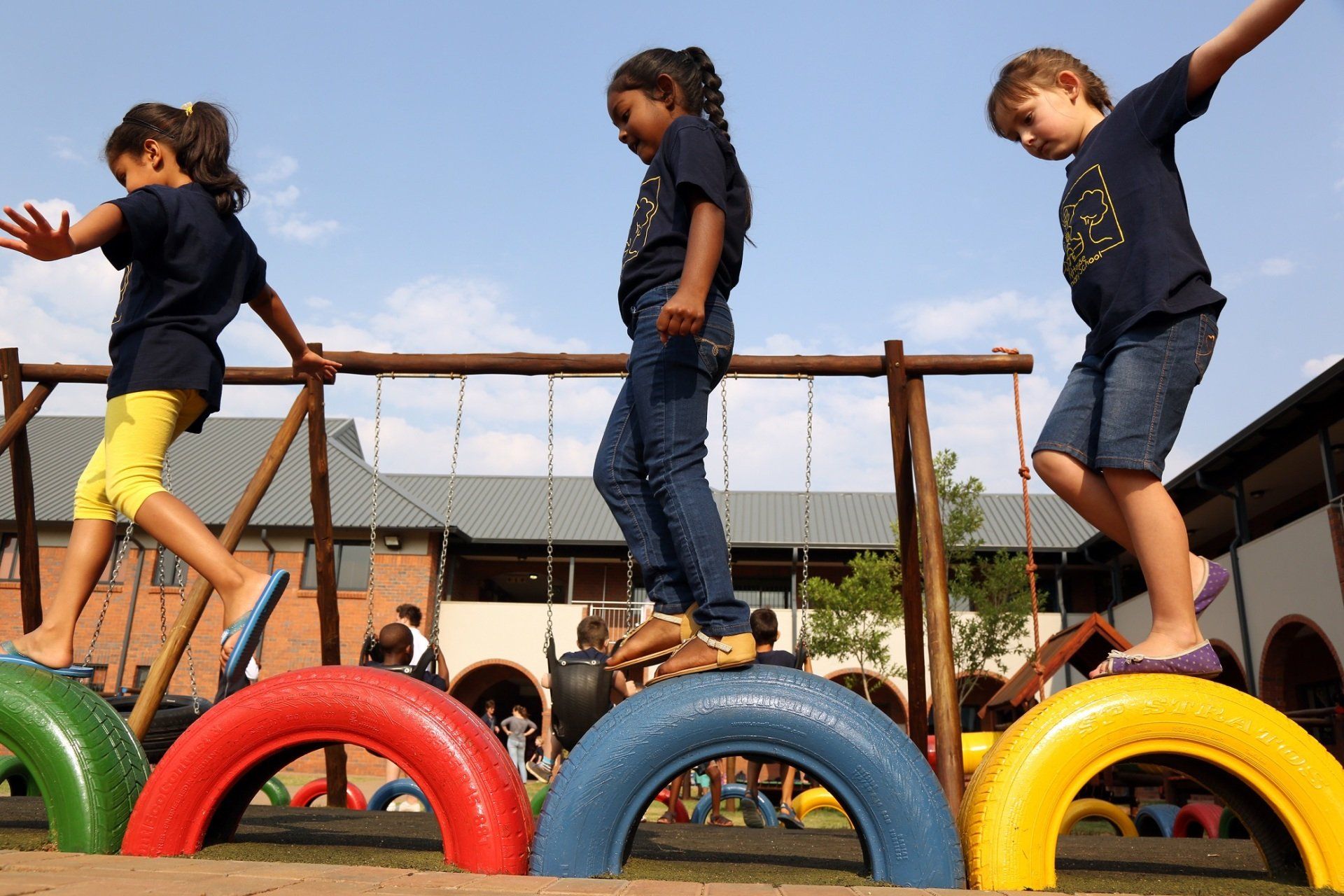How to Get the Best Out of Your Children | Trinityhouse Schools
The aim of raising children is to produce independent, capable and collaborative adults who can communicate well, exhibit self-control, show good manners and empathy for their fellows. In addition, we want creative, innovative, life-long learners. So how do we do this and get the very best out of our most precious possessions?
Show them and tell them that you love them. Fill their love tank:
This sounds so obvious but while most parents love their children, they do not express that love through physical affection, especially once the child begins to resist those hugs and kisses in an embarrassed manner. Children of any age need plenty of physical affection, combined with verbal expression and positive affirmation. (But best not in front of peers after age 8 plus for boys!) Tell them of your love and show appreciation, “I just loved it when you helped me wash up/cook the dinner/lay the table. Thank you” If parents learn to notice the good and show affection and appreciation, the child will feel loved, learn to be positive
and will not use negative behaviour to attract attention.
Pray together
It has never been more important for families to pray together. When you pray together, each member of the family learns what it means to be intimate with God. Prayer is the foundation of your Christian home and is one of the best ways to help your family thrive. Remember that prayer is about relationship, and relationship is something you can’t force, so keep your early approaches to family prayer as light and casual as possible. Start around the dinner table, go on your knees with your three-year-old and let times of prayer and thanksgiving flow out of sharing your joys. When you see answers to prayer, you experience His Love and His Presence in your daily lives. For this reason, there’s no time like the present to introduce your children to the joy and excitement of prayer.
Boundaries
Children feel safe when they have boundaries. Have weekly family meetings, even with children as young as 3, and discuss and formulate your family rules. The whole family agrees to abide by the rules, such as speaking respectfully to each other and keeping your room tidy. Write them out and stick them on the fridge. Agree on the consequences for breaking rules. Use your meetings to plan outings, holidays etc., as well as to talk about behaviour and chores. Teenagers will always balk at rules, but are more likely to comply if they helped to make them in a loving and supportive family environment. All our sports and work environments have rules so don’t be afraid of having them in your family!
Children need your time:
Modern life is challenging for parents with the morning rush to school and work and then the homework, dinner and bedtime routines to get through in the evenings. There seems so little time to just relax and play with the children but this is absolutely essential to their well-being. Schedule a time for ball games, walks, playing board games, reading together and just chatting, with phones switched off. Notice TV and tablets are not mentioned. The latter are not true social activities and do not encourage children to learn to make eye contact, read facial expressions or manage the give and take of doing things with others. By all means use a video link when you are apart, but this is not a substitute for you.
Acknowledging feelings:
There are so many more emotions than happy and sad and children learn to identify and manage their feelings by example. If dad yells and throws things when he loses his keys, the children will see this as acceptable behaviour. After all, dad is their hero and they will emulate him. It’s okay to be angry, but children must learn how to express it appropriately from their role models. Acknowledge feelings verbally, such as, “I can see you are upset because your friend didn’t play with you today. Let’s talk about how you can deal with that.” Give the child autonomy to make a plan and try it out. Phoning the child’s mother or teacher shows the child that you do not trust him to solve his own problems. This leads to dependence and you do not want your university child to be constantly expecting you to sort out his life!
Encourage independence:
By the end of pre-school your child should be able to dress, bath, tidy their room and toys, put their dirty clothes in the laundry basket and have simple daily chores such as laying the table. Some even feel that an eight-year-old should know how to sort laundry and load the washing machine. Independence and chores must increase with age, even if you have domestic help. It is not the parent’s job to lay out clothes for the next day or pack the school bag. You can help by being organised yourself and set an example, but you also have to show your child how to do a task, let them practise it, and give support if needed, before expecting it to be done properly. Living in an organised home and having some responsibility for it will support the child at school. He will be able to plan his desk, school work and locker space and not work in a constant mess. “Tidy as you go” is a good habit to encourage.
Children need to play with their peers
From the age of four, playing with peers, without interference from adults, is as essential as food to a child’s well-being. Through play, they learn to assert their needs while meeting those of their playmates. Friends just quit the game when a child is too demanding so children learn to sublimate their needs and pay attention to others. This is the most important skill that children need for life, marriage and the work place, none of which will allow you to have all your own way. With other children they have authentic communication and practise true independence. They negotiate what and how to play, they discuss and create rules. They modify rules as they play and become more creative as they experiment with variations. “Constant adult supervision and interference has been attributed to rising anxiety levels and depression in teens and young adults. (Gray P 2011.) Yes, you do have to keep an eye on safety, but don’t remove all challenges and do give them privacy. Read your book or cook with the door open but don’t organise the play or hover. Don’t over organise children in extra-murals, they do not substitute for free play.
“Children need to play out the norms of their society, and test them, often violating the rules, but this encourages the practise of courage and independence.” Gray P. 2012 Freedom to Learn.
With the lack of safe places to congregate, teenagers have turned to the internet for their ‘play’ with peers. Here you have to teach them on-line safety and impose some restrictions but they need this space to share thoughts and feelings in privacy.
Grit, perseverance and the ability to delay gratification
Today we are seeing a generation less likely to stick to tasks or to persevere in the face of difficulty. The finest inventions have been created because the inventors tried and tried again in the face of failure. Edison tried 1000 times before he created the light bulb. Children need to learn that not everything comes easily and effort and perseverance is necessary. Don’t allow them to constantly change activities when they hit a bump. Praise effort not results. Not every child is an A student but with hard work, everyone can reach their own potential.
Help them learn to delay gratification by not providing everything on demand. From age five, expect them to do small tasks to earn points towards a desired toy and later they can save a reasonable contribution from their pocket money. Don’t replace lost school items instantly, but if you have to, deduct pocket money afterwards. Schoolwork becomes more demanding by matric and the child who is able to delay gratification and persevere to do the studying required, will do well.
Teach money sense:
This has been touched on above, but if you start the habit of spending one third, saving one third and giving one third to charity, your child will develop money sense and learn to plan and budget for his ‘wants’. It is the parent’s job to provide the ‘needs’. If the family understand the share market, a twelve-year-old can be introduced to it and learn from an early age how to invest and grow their income. Your child will be more equipped for adulthood and be able to make sensible financial decisions. If he has learned to save some pocket money regularly, he may be close to buying a car as he leaves school.
Food and Exercise:
Our modern life encourages everything to be fast but not our bodies, which are becoming more and more sedentary. Here too, setting an example is vital. Taking walks as a family, using the gym, swimming or playing games in the garden sets a habit of activity that should take them through to adulthood. Exercise releases the ‘happy’ hormones, endorphins and serotonin, so screen time needs to be limited, even for the socializing teenagers. Children who have regular exercise also cope better in class and are less likely to become obese. This brings us to eating habits.
Teaching healthy eating habits is something that starts from weaning time and also requires role models at home. You can’t say no to chips and coke if dad is having them. Fast food should be an occasional convenience meal and sweets should be one or two after a meal, sometimes, not the whole packet daily. Don’t use either of these as a reward or children will crave them. Teachers should not use sweets as a reward either! Cut out the fruit juices and fizzy drinks in favor of water and make vegetables and fruit a bigger part of the diet than carbs. Children who eat properly have better concentration and don’t have energy slums. This leads to better school results. Pack sensible lunch boxes and don’t rely on tuck shops unless the school has strict policies about what may be sold.
Life Long Learning and problem solving
Once again, this is modelled by caregivers. Enjoy documentaries and good books with the children, model reading yourself, watch the news and discuss it, have conversations at meal times that involve expressing opinions on topics of interest and take courses to improve your own learning. View problems as challenges and demonstrate how you solve them. Stand back when your children encounter challenges and allow them the opportunity to try their own solutions.
Getting the best from your childrenis at least a twenty-one-year process. It takes planning, patience, dedication, commitment and love but the results are so worthwhile.















